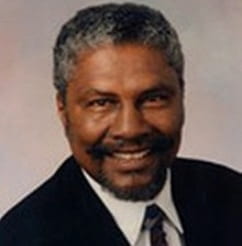
Bo Tefu and Antonio Ray Harvey, California Black Media
Authorities Warn: There’s a COVID Surge in California
California is experiencing a COVID-19 surge this summer, experts warn, as numbers of infections increased for the third month this year.
State public health authorities attribute the summer COVID surge to more infectious subvariants that have emerged as the coronavirus evolves.
Dr. Elizabeth Hudson, regional chief of infectious disease at Kaiser Permanente Southern California, stated that subvariants of COVID-19 called FLiRT increased in recent months, particularly one named KP.3.1.1 that has become the most common strain in the country.
Dr. Peter Chin-Hong, an infectious diseases expert at UC San Francisco, said that the subvariant KP.3.1.1 seems most adept at transmission.
“The subvariant is the one that people think will continue to take over, not only in the United States, but … around the world,” Chin-Hong said.
According to data estimates by the Centers for Disease Control and Prevention (CDC), the coronavirus in California’s wastewater has spiked for eight consecutive weeks. Hospitalizations and emergency room visits have also increased since the rise of the new subvariants. Over the last month, Los Angeles County experienced an average of 389 hospital patients per day that tested positive for the coronavirus. The FLiRT subvariants such as KP.3.1.1. Made up over 2% of coronavirus samples nationwide, an increase of more than 7% last month.
The majority of the people who tested positive for COVID-19 complained of a sore throat and a heavy cough. Risk factors that can increase the illness include age, underlying health issues, and vaccine dosage.
Health experts stated that the demand for the COVID-19 vaccine has increased in Northern California. However, people are having a hard time getting the vaccine due to the increasing number of cases.
Inland Empire Philanthropist Reggie Webb Laid to Rest
Reginald “Reggie” Webb, a philanthropist and one of the most successful fast-food restaurant owners in Southern California, was laid to rest last month after a long battle with leukemia. He was 76.

According to California State University, San Bernadino, Webb owned and operated 16 McDonald’s restaurants, employing over 1,100 workers. His expertise in business and passion for community involvement led to the creation of Webb Family Investments and Cooperative Economic Empowerment Movement, which provided support for Black-owned businesses as a means to build and circulate capital within the Black community.
Webb once led the National Black McDonald’s Operator Association, chaired the National Leadership Council, and was the founding chairperson of the Global Operator Leadership Council, representing McDonald’s franchisees worldwide.
Webb was a committed supporter of California State University San Bernardino Black Faculty Staff and Student Association Pioneer Breakfast, a program that raises scholarship funds for Black students, according to CSUSB. He also raised funding for the Inland Empire Concerned African American Churches’ annual Martin Luther King breakfast at Cal State San Bernardino.
He received the 365Black Lifetime Achievement Award in 2002 in recognition of achievements of importance that bonded the African American community.
State Superintendent Tony Thurmond Addresses Hate in Schools Following Racist Incident in Culver City
Last week, Superintendent of Public Instruction Tony Thurmond denounced hate crimes in schools following a racist and homophobic incident that occurred at a Culver City school.
At a press conference on Aug. 8, Thurmond joined the Culver City Unified School District (CCUSD), the County of Los Angeles Commission on Human Relations, other state officials and community leaders to urge students and families to support state-led efforts to end hate crime in their communities.
At the event, Thurmond referenced the Los Angeles County vs. Hate Initiative, a campaign that connects students to resources and programs that promote safety and anti-bias in-state public schools. Recently, L.A. County officials worked with partners to expand programs and make resources available in all 80 school districts across the county.

“We must push back against hatred,” said Thurmond. “Especially when acts of hate occur in our schools, we must address them head-on.
In July, two boys were arrested at the Culver City school after officers found a broken classroom window and graffiti in various areas of the school. The officers also uncovered hate speech against Black People and LGBTQ individuals. The two boys were arrested and later released to their parents, authorities stated.
Police later revealed that the two boys reside in L.A. and neither one of them attended schools in Culver City.
Triston Ezidore, a CCUSD board member, commended local government and school district officials for taking action to promote safety at public schools.
“This is what happens when elected officials at every single level of government together with everyday neighbors with our teachers, our students, our faith-based organizations, and community partners to tackle the very pressing issue of hate at our schools,” said Ezidore.
Thurmond reinforced the State’s Education to End Hate initiative, a program that has allotted $20 million for school districts to implement anti-racism and anti-bias initiatives in public schools. California school district superintendents, county superintendents, and charter school administrators can receive up to $20,000 for each approved proposal submitted to the state Department of Education.
Back in Session, California Lawmakers to Decide More Than 1,300 Bills
After a monthlong summer recess in July, the California Legislature reconvened last week on Aug 5.
On their plates are more than 1,300, bills they must discuss and decide before their Aug. 31 deadline.
Some of those bills are related to hot-button issues under increasing national scrutiny as the country approaches national elections in November, including Assembly Bill (AB) 1825.
Titled the California Freedom to Read Act, AB 1825 would prevent library review committees from banning material that deals with race or sexuality. This proposed law requires state public libraries to outline their policies for approving or rejecting books. State public libraries will also have to establish a system that allows people to voice their concerns and objections regarding the books and policies.
According to the American Library Association, approximately 4,420 books were targeted last year nearly double the number of books since 2022.
“The number of titles targeted for censorship surged 65% in 2023 compared to 2022, reaching the highest levels ever documented by the American Library Association (ALA),” the organization said in a statement.
The Jewish Public Affairs Committee is one of the groups set to rally in Sacramento to support AB 1825 to expand disclosure agreements for school districts that use ethnic studies courses in the curriculum. State legislators backing AB 1825 include California State Sen. David Min (D-Irvine) and U.S. Rep. Katie Porter (D-CA-47).
State legislators are also working on two bills that would tax online platforms such as Google and Meta and use the funds generated to support local journalism. They are AB 886 authored by Assemblymember Buffy Wicks (D-Oakland) and SB 1327 authored by Sen. Steve Glazer (D-Orinda).
Other bills in the works include legislation that would ban legacy admissions at private universities such as Stanford. Authors of that bill, AB 1780, include California Legislative Black Caucus members Assemblymember Lori D. Wilson (D-Suisun City and Assemblymember Kevin McCarty (D-Sacramento).
The Legislature has until Aug. 31 to vote on bills and pass them on to Gov. Gavin Newsom for approval.
Newsom has until Sept. 30 to sign or veto proposed bills that reach on his desk.
Gov. Newsom Plans to Revoke Funding for Cities and Counties Delaying Encampment Sweeps
Gov. Gavin Newsom promised to take away state funding from cities and counties that delay implementing an executive order to clear out homeless encampments statewide and relocate occupants to shelters.
Last week, the California Department of Transportation (CalTrans) worked with Newsom to clear several encampments in the Los Angeles area.
“I want to see results,” said Newsom at a press conference on Aug. 8.
“I don’t want to read about them. I don’t want to see the data. I want to see it,” he said.
Gov. Newsom pressured local governments to clear homeless encampments in an executive order he issued last month.
Newsom’s decision came after the United States Supreme Court overturned a decision by a lower court ruling that governments are not allowed to force people to leave encampments without shelter beds available.

Over the last five years, California has spent approximately $24 billion to clear the streets and house people. The state has also invested $3.2 billion in grant funding for local governments to build shelters, clear encampments, and provide services to homeless people.
The Newsom administration has pulled back a $10 million grant to San Diego to build small homes because the county is delaying clearing out encampments.
However, the California State Association of Counties, representing all 58 counties, stated that it will continue to work with Gov. Newsom.
Charles R. Drew Univ. of Medicine and Science Receives $75 Million Gift
Charles. R. Drew University of Medicine and Science, a historically Black university (HBCU) in South Los Angeles, received a $75 million gift last week, the largest donation in the history of the university.
The university, founded in 1966, received a donation from the Bloomberg Philanthropies’ Greenwood Initiative. That program aims to accelerate wealth accumulation in the Black community, addressing underinvestment, said university officials in a statement.
Dr. David M. Carlisle, the university president and chief executive officer, appreciated the initiative’s generous donation.
“This monumental gift from Bloomberg Philanthropies is a transformative investment in the future of healthcare, our university, and most importantly, our students,” said Carlisle.
“It will significantly enhance Charles R. Drew University of Medicine and Science’s ability to educate and empower diverse healthcare professionals who are committed to serving underserved communities,” he said.
The university received the donations as part of a $600 million initiative led by Bloomberg Philanthropies to support Black medical schools. The organization also invested in Howard University College of Medicine in Washington, D.C., Meharry Medical College in Nashville, and Morehouse School of Medicine in Atlanta. The initiative confirmed that it will also help launch the Xavier Ochsner College of Medicine in New Orleans.
The Greenwood Initiative is led by the former New York City Mayor billionaire Michael Bloomberg, founder of Bloomberg Philanthropies and Bloomberg LP.
“Addressing health disparities and underrepresentation in the medical field are critical challenges, and Bloomberg Philanthropies is dedicated to making a difference. By building on our previous support, this gift will empower new generations of Black doctors to create a healthier and more equitable future for our country,” said Bloomberg.
Attorney General Rob Bonta Joins Coalition Backing President Biden’s Migrant Parole Program
Attorney General Rob Bonta joined a multistate coalition of 18 attorneys general to write an amicus brief supporting President Joe Bidens’s Parole Program for migrants fleeing violence.
The multistate coalition will submit the brief to the Fifth Circuit Court of Appeals regarding the case Texas v. U.S. Department of Homeland Security. The brief endorses Biden’s Parole Program for Cubans, Haitians, Nicaraguans, and Venezuelans (CHNV Parole Program). The migrant parole program allows individuals from the four countries to apply for advance travel authorization. Migrants can be considered for temporary humanitarian parole of up to two years including employment authorization.
The coalition highlighted California’s interest in maintaining the federal government’s discretionary power granting migrants entry or allowing immigrants to stay on humanitarian grounds.
“In California, we believe that migrants escaping violence should be treated with compassion and dignity, and immigration parole programs are a crucial part of a just and secure immigration system,” said Bonta.
“The Biden Administration’s CHNV Parole Program provides a safe pathway to apply for protection for Cuban, Haitian, Nicaraguan, or Venezuelan migrants fleeing violence and upheaval. We urge the court to uphold this program that creates orderly processes for people fleeing humanitarian crises to lawfully reach the United States,” he said.
The federal government has exercised its authority under the Immigration and Nationality Act to parole migrants into the country for humanitarian purposes since the Eisenhower Administration.
The coalition argued that the lawsuit in Texas threatened to undermine the federal government’s authority to establish crucial programs that help migrants escape unstable circumstances in their home countries.
The coalition stated that parole provides safe, legal, and orderly pathways for people to seek protection in the United States.
However, opponents claim that parole pathways help increase crime and impose costs on states.
Sen. Bradford Reprimands Fellow Lawmakers on Unaffordable Energy
California Sen. Steven Bradford (D-Inglewood) blamed fellow lawmakers and utility authorities for the high cost of — and unreliable access to — energy across the state.
Bradford, who chairs the Senate’s energy and utilities committee, addressed a group of state energy leaders about the state’s worsening energy-related challenges.
“We find ourselves here today with these challenges because our legislation has been more aspirational than practical,” said Bradford.
“Consumers are feeling this, and we need to be more practical in what we’re trying to do,” he said.
Bradford expressed his frustrations during an oversight hearing on the State’s electric grid. State leaders have started paying attention to power bills that address current and emerging energy issues.
Gov. Gavin Newsom has proposed plans to lower energy prices before August 31, the state deadline for legislators to submit bills for the governor’s approval.
California law states that by 2045 electricity must come from renewable and zero-carbon sources. In efforts to achieve this goal, the plan requires the state to reach the 90 percent mark before 2036.
Newsom’s administration announced that state agencies and utilities received a $600 million federal grant to upgrade electric transmission. However, Sen. Bradford said that state officials were attempting to achieve energy goals with their hands tied behind their backs due to policies passed by lawmakers.
State officials attributed the energy problems to uncertain weather events, shrinking budgets, and high prices causing people to leave the state.
Sen. Kelly Seyarto (R-Murrietta) said California is facing a “curvy road with a bunch of potholes in it,” supporting Bradford’s concerns.
“The faster we go through those curves, the more chances we are going to run off the road,” said Seyarto.
Dr. Michael Eric Dyson Eulogizes “The Father of Black Studies” in San Francisco
Dr. Michal Eric Dyson delivered the eulogy at the memorial service for Dr. Nathan Hare held at San Francisco’s historic Third Baptist Church last month.
Hare, the founder of the publication “Black Scholar: A Journal of Black Studies and Research,” and recognized as the “Father of Black Studies,” passed away on June 10 at the age of 91.
Dyson is a professor at Vanderbilt University, an author, ordained minister, and radio host.
“Dr. Hare was part of the documentation of the vicious onslaught against a vulnerable but viable Black ego, Black mindset, and Black intellectual formation,” Dyson said. “He was serious about using words to defend vulnerable Black people.”

After leaving Howard University in 1967, Hare became the Black Studies program coordinator at San Francisco State College (now San Francisco State University).
When the interim president of the college threatened to shut down the program, Hare teamed with the faculty and students to protest the action. During that effort, they clashed with San Francisco police and Hare was later fired.
Two years later, with the release of “The Black Scholar,” Hare’s research rose to become a tool for the Black Power movement on and off college campuses. Hare received a lifetime achievement honor from the American Book Awards in 2019.



